Just 1 per cent of most lucrative defined benefit pension schemes to be affected by new super tax
Ninety-nine per cent of ex-politicians and public servants on lucrative pension schemes will be unaffected by Labor’s proposed super changes.
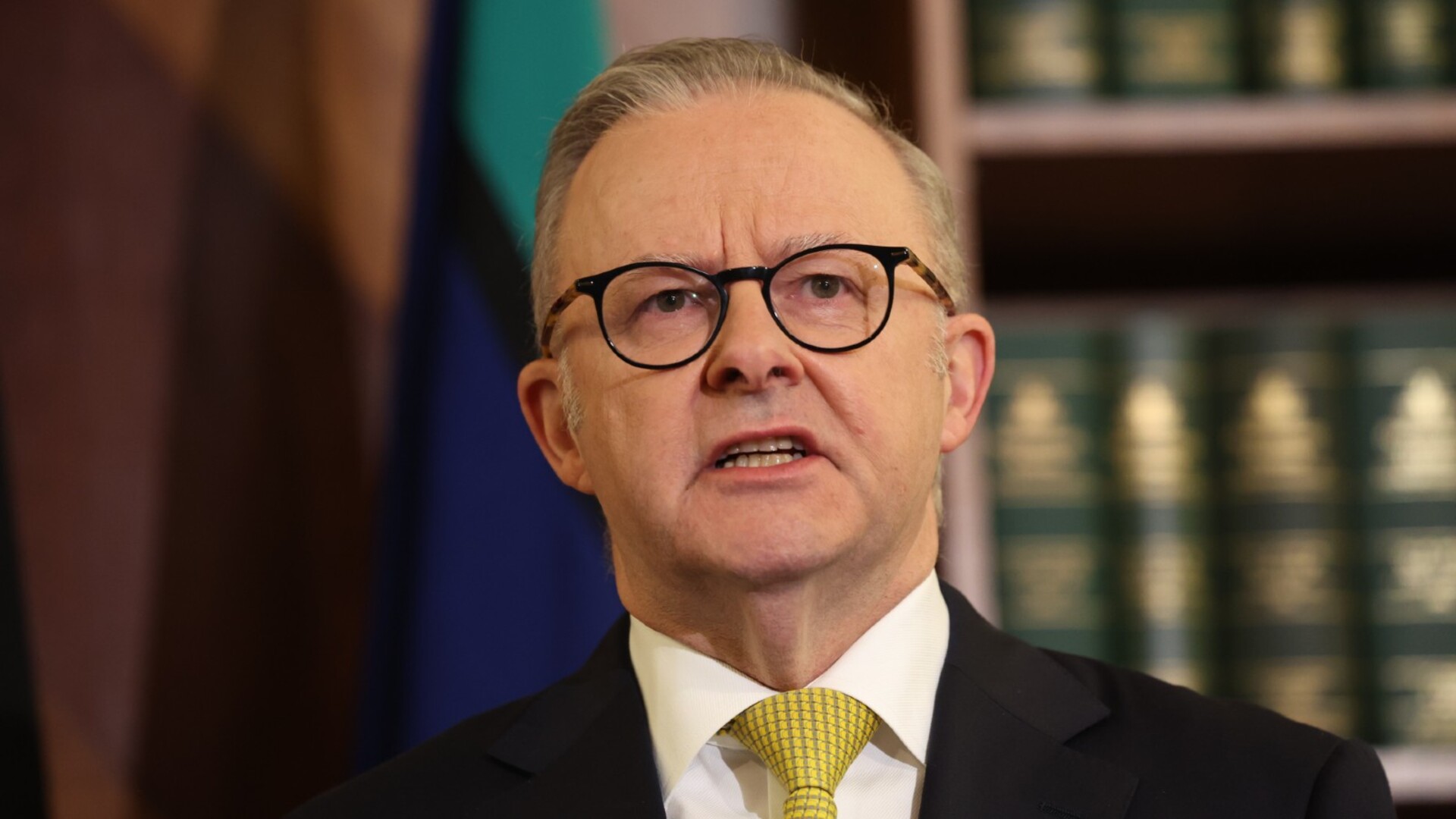
Business
Don't miss out on the headlines from Business. Followed categories will be added to My News.
Just 1 per cent of former politicians and public servants on defined benefit pension schemes will be affected by Labor’s controversial superannuation changes in the first year, while others eligible for the lucrative arrangements including Anthony Albanese will be able to defer paying the new taxes until they retire.
Treasurer Jim Chalmers is holding firm on his proposed superannuation tax changes, known as Division 296, which will double the rate of taxation on balances over $3 million from 15 per cent to 30 per cent.
The policy, slated to come into effect from July 1 if the legislation is passed by the Labor-Greens Senate, would most controversially tax unrealised gains on assets held by super funds including shares, property and farms.
Critics of the proposal have also warned that if the $3 million cap is not indexed to inflation, a growing number of Australians would be affected by the new tax through bracket creep.
Only around 80,000 Australians, or 0.5 per cent of the population, currently have super balances above $3 million. Treasury estimates that could rise to 1.2 million people in 30 years without indexation.
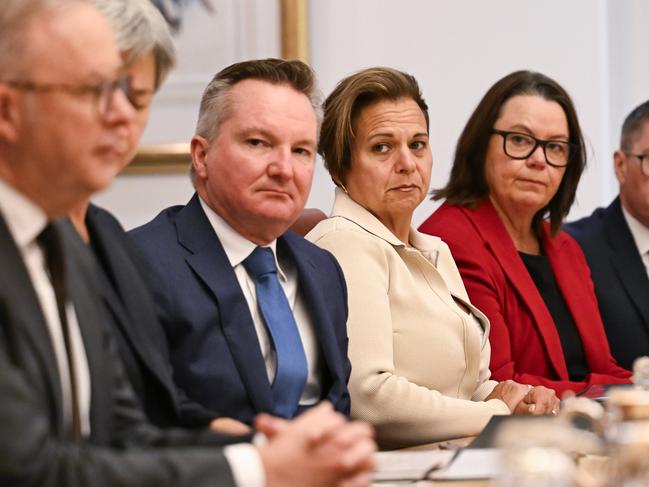
‘It’s appalling’
Federal MPs elected to parliament prior to October 2004 — including the Prime Minister and opposition leader Sussan Ley — are eligible for defined benefit schemes, which pay out a hefty lifetime pension, indexed to inflation and calculated by a formula including the member’s average salary and years of service.
According to Labor’s draft explanatory materials, an estimated 10,000 members with defined benefits interests will be impacted by the new tax in 2025-26, “representing approximately 1 per cent of the total population with DB interests”.
Treasury has stressed that this is because only a small percentage of defined benefit schemes are valued over the threshold.
“It’s appalling that 99 per cent of politicians on defined benefits will not be impacted by the tax on unrealised gains,” said Wilson Asset Management founder Geoff Wilson. “How can Australians trust politicians when they behave like this?”
Mr Albanese and others currently accruing retirement benefits under defined benefit schemes will not have to start paying Division 296 tax until they start receiving pension payments or lump sum payouts when they retire at age 55 or older.
“Division 296 tax liabilities relating to a defined benefit interest may be deferred,” the document says.
Interest will be charged annually on the deferred tax liability at the 10-year bond rate, currently at around 4.5 per cent.
“If you can’t get the money released from a defined benefit, what they’ll do is defer the tax payment until you are eligible to receive the defined benefit,” Andrew Boal from the Actuaries Institute told The Australian Financial Review on Monday.
“This reflects the fact that money generally cannot be released from defined benefit interests until a superannuation benefit is paid, usually upon retirement.”
MORE: Can you use superannuation to buy a house?
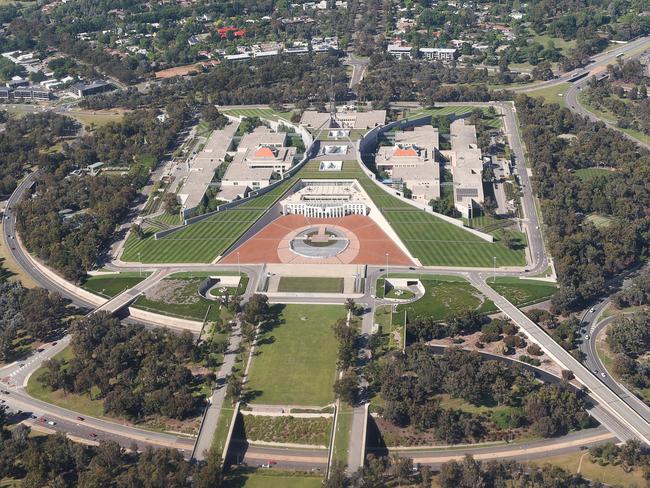
Treasury had previously noted that calculating how to apply the new tax to defined benefit schemes would be complex as they do not have a total cash balance like typical super funds.
Many are unfunded or partially funded, meaning payouts are drawn directly from consolidated revenue, so changes to the member’s “total superannuation balance” for the purposes of calculating the new tax must be done using a formula.
“Regulations will be developed to deliver commensurate treatment for members of defined benefit funds, including ensuring they have appropriate valuation methodologies for TSB purposes that provide an appropriate point-in-time value that can be tracked annually,” the explanatory memorandum states.
Draft regulations released last year show defined benefit schemes will be assessed using the existing family law valuation method, used when dividing assets during divorce or separation.
On Sunday, Liberal Senator Andrew Bragg claimed the Treasurer was planning “a tax on everyone except for Mr Albanese, where he will set special arrangements for the Prime Minister”.
Mr Bragg called on Dr Chalmers to disclose exactly how Division 296 would be applied to the PM’s defined benefit scheme in the legislation, rather than through ministerial regulation at a later date.
“Otherwise, it’s a massive conflict of interest where, effectively, he would be setting the Prime Minister’s pension arrangements subsequent to the bill passing the Senate — which is an unmanageable conflict of interest,” he told Sky News.
A spokesman for the Treasurer accused Senator Bragg of “lying and misleading again in his desperation to get selected for the Liberal shadow frontbench”.
“Defined benefit interests, including those of federal parliamentarians, are covered by our changes and how they would be treated has been public since 2023 in the primary legislation and since March 2024 in the draft regulations,” he said.
“Andrew Bragg wants to designate a single person in tax legislation and that shows how desperate and dangerous his contributions have become.
“Our modest changes to make superannuation tax concessions fairer and more sustainable apply to defined benefit interests.
“Only half a per cent of people with more than $3 million in super will be impacted by our changes.
“The treatment of defined benefit interests ensures equivalent tax outcomes to accumulation interests, as the previous Coalition government similarly did when they introduced their super changes.”
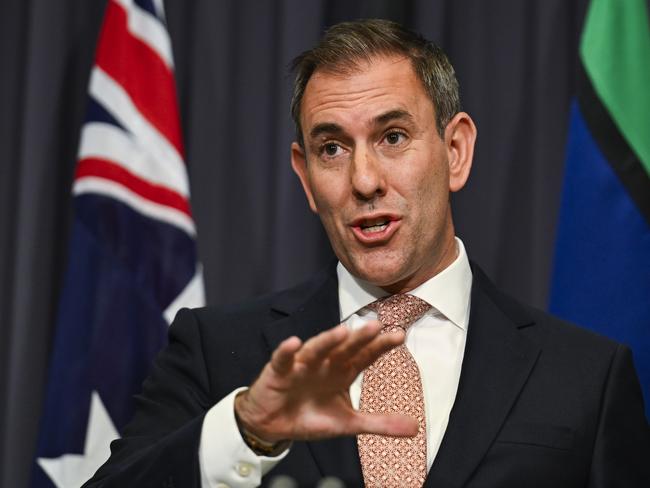
Judges, premiers exempt
Separately, a number of officials including former state premiers, MPs, governors and judges will be exempt from the new tax. Justices of the High Court will also be ineligible.
The exemptions would be restricted to “those earnings in superannuation funds that the constitution prevents being taxed by the government will be excluded”, according to a government summary document, first reported by Sky News.
Acknowledging “it was a hotly contested issue” during the federal election campaign, Labor Senator Murray Watt on Sunday confirmed a “small group” would be exempt.
The cabinet minister said Labor had “received an endorsement from the Australian people to legislate in the manner that we put forward”.
“We need to remember that this affects a very small number of people,” Senator Watt told Sky News.
“That’s a very small part of the community, and the reality is, we will be relying on that taxation revenue to help meet some of our other priorities, like lifting bulk-billing rates in GP clinics and supporting people with cost of living. That money has to come from somewhere, and we think this is a fair way to do that in terms of who will be covered.”
He stressed it was not a matter of deliberately excluding former officials, but that they “cannot be taxed on their superannuation under the Constitution”.
“We’re of course not going to be introducing laws that are in breach of the Constitution and will be struck down,” Senator Watt said.
“But what we are planning to do, as I say, is to reduce the tax concession available for a very small number of people with extremely high superannuation balances. People will still get a concession on their superannuation. It just won’t be quite as generous as it is at the moment.”
The tax is expected to initially raise $2.3 billion a year and nearly $40 billion over a decade.
The opposition has claimed that if the cap is not indexed, that figure could rise to $58 billion annually in 40 years’ time.
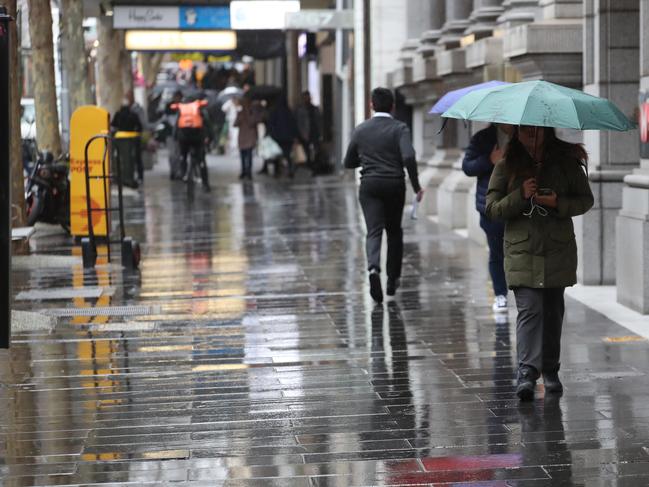
‘Lies and exaggerations’
Last week, Australia Institute chief economist Greg Jericho argued claims that large numbers of young people would eventually be captured by the $3 million cap were incorrect, blasting “lies and exaggerations” in the “hyperbolic scare campaign”.
“Even if someone works their entire life on the full-time average wage, they will not get $3 million in super,” he wrote.
Jericho used the example of an 18-year-old school leaver who lands a job paying the average full-time wage of $106,277, receives a pay rise of 3.7 per cent every year of their working life, and keeps their job until they retire at age 67.
“Surely even with these absurd assumptions, that person will retire with more than $3 million in super? Nope. They will end up, according to the government SmartMoney super calculator, with a super balance of $2.1 million.”
Mr Wilson, who has vocally opposed the changes, said that calculation ignored factors including compound interest and the increased employer superannuation guarantee, which will rise from 11.5 per cent to 12 per cent from July.
“The average super fund grows at 8.5 per cent per annum, it doesn’t grow at 3 per cent,” he said.
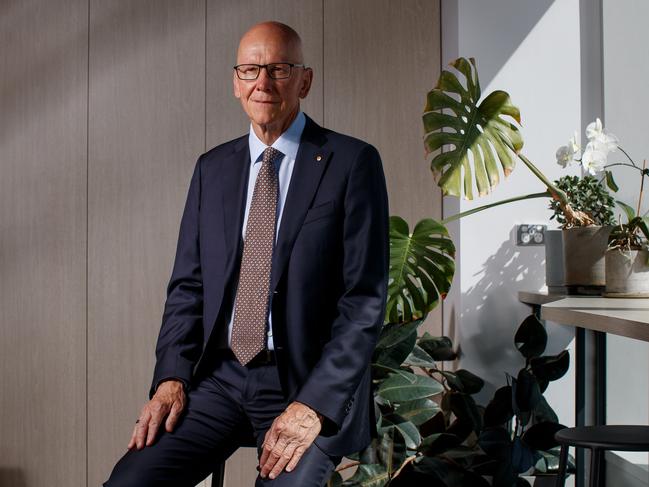
The investment firm’s analysis, based on 3 per cent wage increases and 12 per cent contributions, projects that a university graduate entering the workforce at 21 would reach a balance of $3.6 million by age 65.
AMP deputy chief economist Diana Mousina has similarly calculated that most Gen Z Aussies will have $3 million in their super accounts by the time they retire in around 40 years.
Modelling by the Financial Services Council (FSC) suggests that for those entering the workforce today, an estimated 500,000 super balances will eventually breach the $3 million cap if it is not indexed to inflation.
Mr Wilson said “everyone’s getting caught up” debating how many people would be affected but the more important point was “the government isn’t going to raise the money they’re talking about raising”.
“For every action there’s an equal and opposite reaction,” he said.
In a discussion paper last month, Wilson Asset Management calculated a “deadweight loss” of $94.5 billion from taxing unrealised gains as investors change their behaviour to avoid the tax.
“We’ve estimated $155 billion is going to come out of super and go into the housing market,” Mr Wilson said.
“Effectively they’re destroying the social contract with people putting money in super. I was talking to a 30-year-old, he’s been putting the max he can into super, he’s reduced to putting in the minimum amount. He feels caged in … what are they going to do to me?”
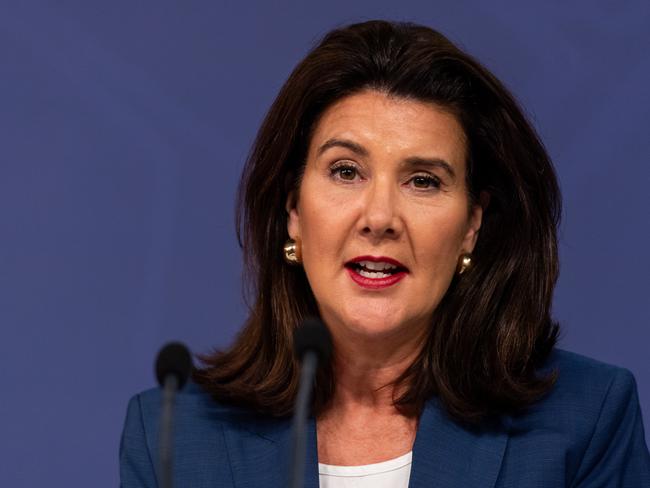
‘Essentially a wealth tax’
On Monday, opposition finance spokeswoman Jane Hume was asked why the Coalition did not campaign harder on Labor’s proposed super tax changes during the election.
The Liberal Senator insisted the Coalition had always opposed the policy.
“Well, in fact, two years ago … we said that we’d, not only would we oppose that policy when it was put forward with the legislation, but that we would repeal it when we were in government,” she told Sky News.
She said Labor “had the opportunity to pass this legislation before parliament rose” but chose not to “because they were held to ransom over indexation”.
“This is not a simple, modest proposal where only 80,000 retirees are affected — more and more will be affected every year,” she said.
“Moreover, this is a tax on unrealised capital gains, something that has never been tried before and has never worked before. We don’t think that this is a good precedent to set. It’s a brand new tax, it’s essentially a wealth tax, it’s a retirement tax, and we think that this is a terrible mistake.”
She added that “Labor are now learning just the extent of the opposition towards it”.
— with NCA NewsWire
More Coverage
Originally published as Just 1 per cent of most lucrative defined benefit pension schemes to be affected by new super tax





